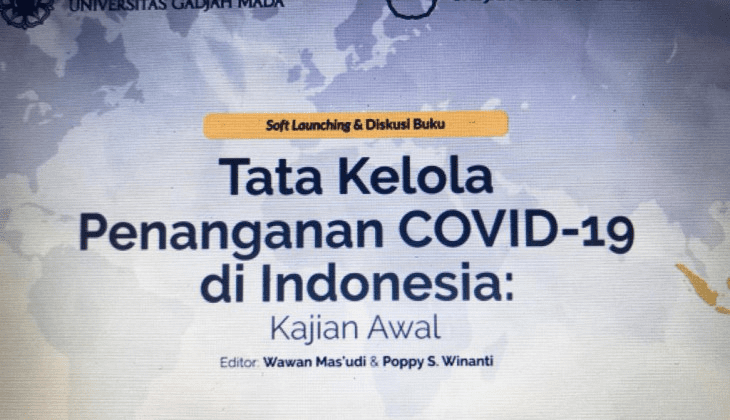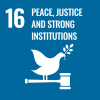
The Health Crisis due to Covid-19 in the last four months worldwide has proffered the crisis on its handling. This global pandemic has caused governance uncertainty in its handling in almost all countries, regardless of the level of economic and technological progress and political character. The standard crisis management system loses relevance, forcing the government to adopt policies that tend to be trial and error. Indonesia even encounters similar challenges, also exacerbated by the pandemic politicization and the neglect of science at the beginning of the crisis, limited economic capacity, and an inadequate health service system.
The Faculty of Social and Political Sciences (FISIPOL) UGM launched the COVID-19 Management Handling Book in Indonesia: Initial Study written by 37 researchers and lecturers across the fields of science at UGM. Books published by Gadjah Mada Press consist of; governments and international institutions response, sectoral responses and resilience, marginal groups and social capital, and the dimensions of public knowledge and communication. This book generally shows the dark side of open governance as the impact of Covid-19, and the ambiguity that engulfed all actors and sectors in responding to it. However, in the midst of uncertainty the strength and initiative of various parties, especially the community, reflected the strengthening of solidarity at the sub-national, national, and global levels.
UGM Chancellor, Prof. Ir. Panut Mulyono, M. Eng., D. Eng., said the presence of this book is a historical record of how the world and the Indonesian responded to the coronavirus pandemic outbreak. “This book provides a record of how we handle something unusual, we hope to be of benefit to the next generation,” the Chancellor said in a virtual discussion and book launch on Saturday (5/2).
The same thing was also conveyed by the Dean of the Faculty of Social and Political Sciences UGM, Prof. Dr. Erwan Agus Purwanto. He said that this book attempts to investigate the handling of Covid-19. Not only in medical terms but also in institutional policies and cooperation between institutions, which is more highlighted by the public at the beginning.
Dr. Wawan Mas’udi as the editor of this book, said that the book discussed a lot about the response of the government and international institutions to Covid-19, comparisons of handling between countries and the dynamics of national policy. He added, many writers see the weak foundation of knowledge as a policy base in the initial co-confection and more dominant political considerations. “There is the fragmentation of policies in which health sector governance is unequal and overly dominated by market forces and oligarchs. “The characteristics of the regime are too focused on the economy and development and were stuttered in the pandemic at first,” he said.
The Chief Expert Staff of the Presidential Staff Office, Abetnego Tarigan, as the respondent in the discussion of the book, acknowledged that at the beginning of the pandemic case began to enter the country, the health sector was among the most criticized by the public. “There is a conclusion of data transparency in this sector. We hope that after this, the government will be more open,” he said.
According to him, it was not easy for the government to decide on policies during this pandemic. However, every public policy taken has been well considered even through survey results. “The government is often perceived as having no assertiveness or competence, but on this issue the government exercises caution and a learning process. In the case of a pandemic, every country is confronted too soon or too late. However, there is a lot of potential for post-covid disclosure, research issues are encouraged to be carried out more, and there is the transparency of data within the government,” he said.



